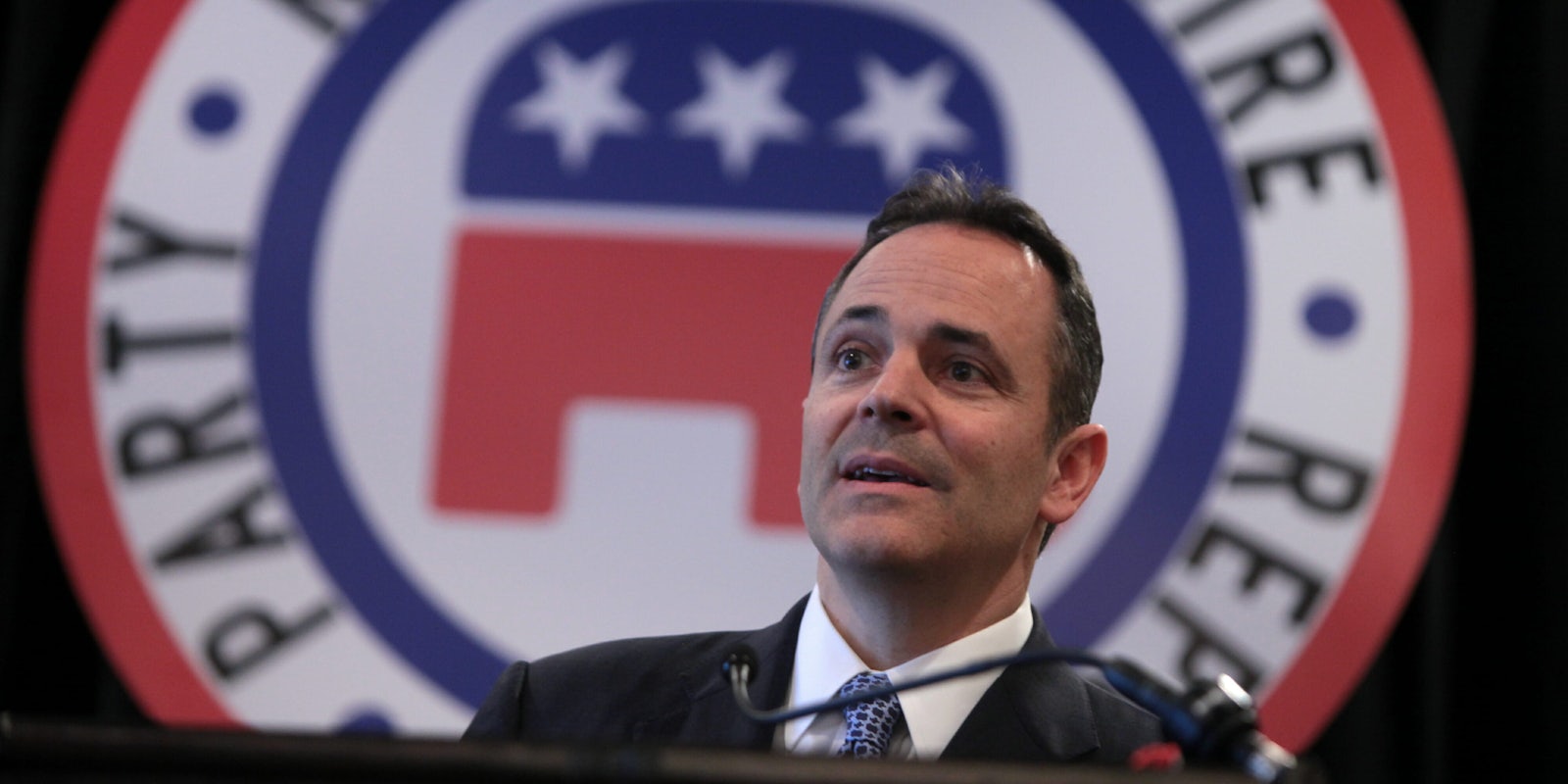Kentucky Gov. Matt Bevin (R) has a theory about why the violence in Charlottesville, Virginia, happened two weekends ago: He believes schools are straying too far away from the Bible and unleashing “mayhem” into the world.
Bevin recently chatted with West Virginia radio host Tom Roten in defense of Confederate statues on state property. During the show, Bevin called the statues’ removal a “sanitization of history” and a “dangerous precedent” in which Americans are “not allowed to talk about certain elements of our history,” Right Wing Watch reports.
The discussion then moved to Kentucky’s “Bible Literacy Bill,” which Bevin signed into law earlier this year, allowing public schools to teach an elective class on Hebrew Scriptures, the Old Testament, and the New Testament.
“I mean it is interesting when you go back a couple hundred years, in most instances the only textbooks that were actually in our public schools were the Bible,” Bevin told Roten. “And so to that end to pretend, again, to scrub history and pretend that that wasn’t reality, I think is a dangerous precedent.”
Bevin went on to argue that the Bible should remain in public schools because it creates a sense of “absolute right and wrong” among students. And when scripture isn’t a part of the classroom, then Bevin thinks that’s how we end up with “mayhem” like Charlottesville.
“And it’s interesting, the more we’ve removed any sense of spiritual obligation or moral higher authority or absolute right and wrong, the more we’ve removed things that are biblically taught from society, the more we’ve seen the kind of mayhem [in Charlottesville] that we were just discussing,” Bevin said.
Treating the Bible like the ultimate moral authority is, of course, pretty exclusionary toward other religious groups who do not believe in the scripture. Civil liberties groups are keeping a close eye on the Kentucky law, which could potentially violate students’ civil rights depending on the courses’ execution.
“Right now the language of the bill is very vague and the Kentucky Department of Education has not yet put together a curriculum,” Kentucky ACLU representative Amber Duke told NBC. “The concern, though, is that you could have a curriculum that is constitutional and could be delivered in a manner that is not constitutional.”
